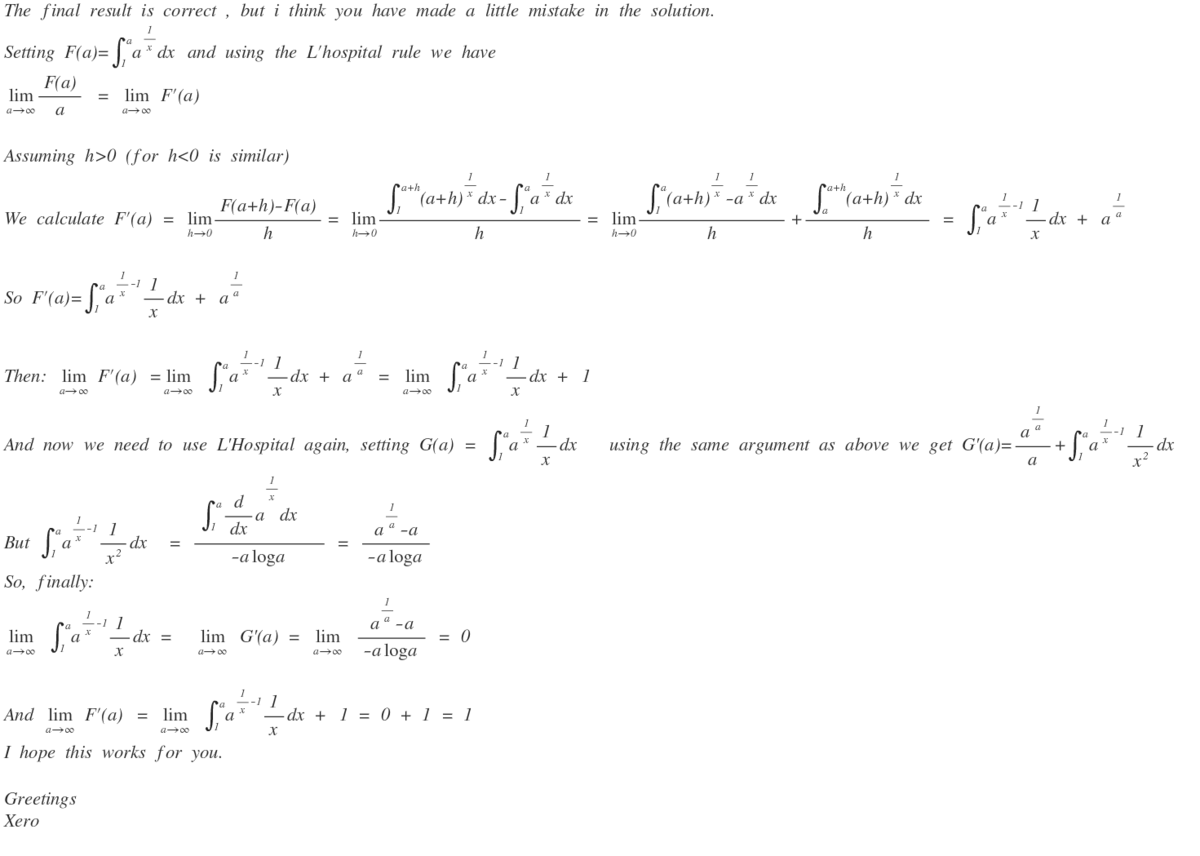Propose by Jan Šustek
α → ∞ lim α 1 1 ∫ α α x 1 d x = ?
Give your answer to 3 decimal places.
The answer is 1.000.
This section requires Javascript.
You are seeing this because something didn't load right. We suggest you, (a) try
refreshing the page, (b) enabling javascript if it is disabled on your browser and,
finally, (c)
loading the
non-javascript version of this page
. We're sorry about the hassle.
2 solutions
We can use L'Hopital's rule to evaluate this:
lim a → ∞ a 1 ∫ 1 a a x 1 d x = lim a → ∞ d a d ∫ 1 a a x 1 d x = lim a → ∞ d a d [ F ( a ) − F ( 1 ) ]
where F ( x ) is the antiderivative of a x 1
lim a → ∞ d a d [ F ( a ) − F ( 1 ) ] = lim a → ∞ F ′ ( a ) = lim a → ∞ a a 1
because F ′ ( x ) is a x 1 and thus F ′ ( a ) is a a 1 .
This last limit can be evaluated by using exponents, and then again with L'hopital's rule:
lim a → ∞ a a 1 = e lim a → ∞ a 1 ln a = e lim a → ∞ a ln a = e lim a → ∞ a 1 = e 0 = 1
There is a mistake in the calculation of F'(a) i post my solution.
Therefore, the answer is 1 . 0 0 0 , if the problem said to give the answer to 3 decimal places
